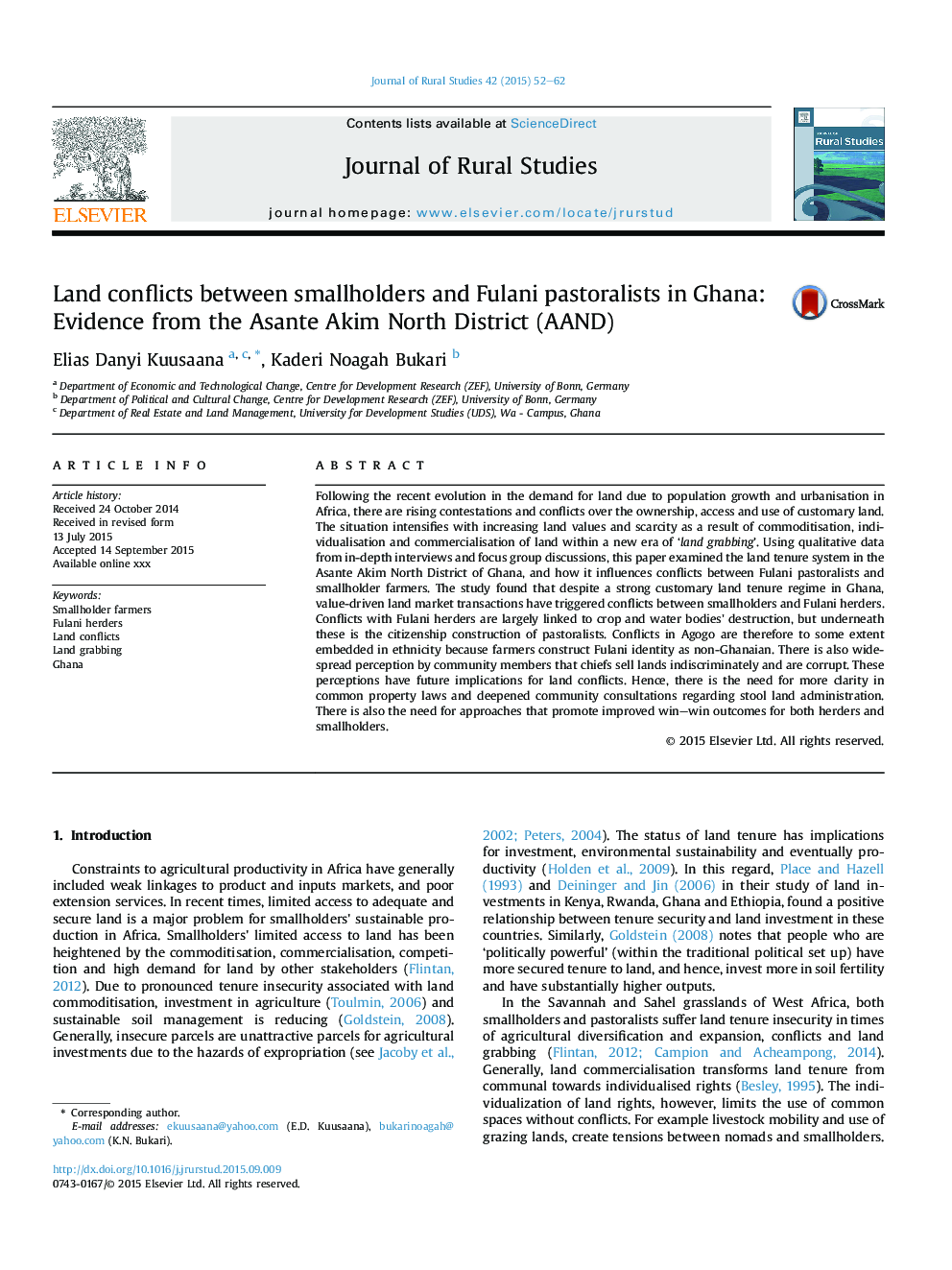| Article ID | Journal | Published Year | Pages | File Type |
|---|---|---|---|---|
| 6545571 | Journal of Rural Studies | 2015 | 11 Pages |
Abstract
Following the recent evolution in the demand for land due to population growth and urbanisation in Africa, there are rising contestations and conflicts over the ownership, access and use of customary land. The situation intensifies with increasing land values and scarcity as a result of commoditisation, individualisation and commercialisation of land within a new era of 'land grabbing'. Using qualitative data from in-depth interviews and focus group discussions, this paper examined the land tenure system in the Asante Akim North District of Ghana, and how it influences conflicts between Fulani pastoralists and smallholder farmers. The study found that despite a strong customary land tenure regime in Ghana, value-driven land market transactions have triggered conflicts between smallholders and Fulani herders. Conflicts with Fulani herders are largely linked to crop and water bodies' destruction, but underneath these is the citizenship construction of pastoralists. Conflicts in Agogo are therefore to some extent embedded in ethnicity because farmers construct Fulani identity as non-Ghanaian. There is also widespread perception by community members that chiefs sell lands indiscriminately and are corrupt. These perceptions have future implications for land conflicts. Hence, there is the need for more clarity in common property laws and deepened community consultations regarding stool land administration. There is also the need for approaches that promote improved win-win outcomes for both herders and smallholders.
Related Topics
Life Sciences
Agricultural and Biological Sciences
Forestry
Authors
Elias Danyi Kuusaana, Kaderi Noagah Bukari,
